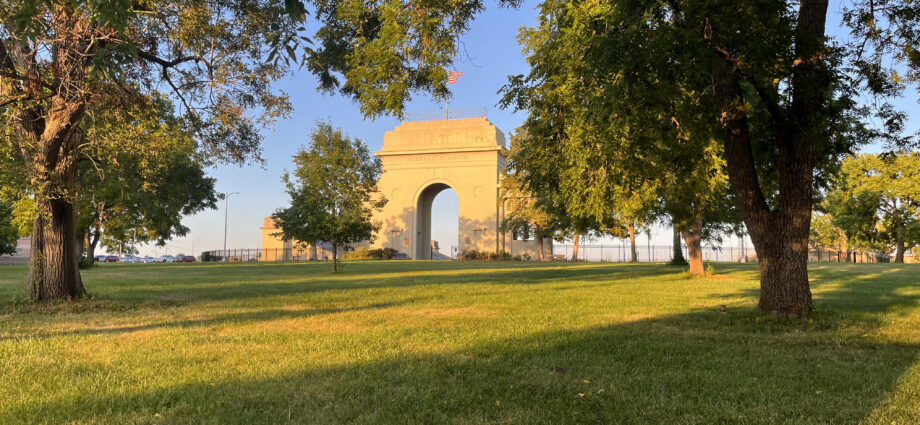By Kyla Williams
The wetlands are a place that holds significant meaning to many, while others are unaware of the importance that the land provides for human and non-human species. This land flows with water and is filled with native plants, trees, and animals residing in the area. It has been here before many of us and has been adapting to the changes humans have been making to make driving more efficient with the building and expansion of Highway K10.
Throughout my time working on this story, I have had the privilege to venture into the wetlands with friends to experience what the land has to offer and bask in my surroundings with nature. Hearing from others, the wetlands and surrounding land along the highway hold just as much significance. I was able to interview Courtney King, a member of the Peoria and Miami tribe, who is a lab and field research assistant for the environmental science program at Haskell Indian Nations University. King is also a coordinator for events that allow people to volunteer to reconnect with the land, help pick up, or even restore native plants into the woodlands and wetlands of Haskell.
King mentions, “People tend to think with restoration and any kind of scientific stuff, they kind of see themselves as an outcast because they don’t have that botany knowledge or ecology knowledge- so they don’t want to get that involved, but you don’t really need that knowledge to be involved.”
Getting out there and participating in restoring the woodlands and wetlands, whether you have no knowledge, a tremendous amount of expertise, or are just interested in wildlife, plants, or volunteering– Haskell’s greenhouse is a great way to reconnect with nature and help the environment for future generations to access native species like the ancestors had. A great way to stay up with future events is to follow their Instagram @Haskellgreenhouse.
An issue that arose last year was brought up in a town hall meeting on February 7th, 2023, which will affect the Haskell wetlands and Wakarusa Valley. The project comes from KDOT and Douglas County, where they have partnered up and plan to expand Highway K10, which will cut into both lands. This expansion is planned to be completed by the end of 2024. While attending this town hall meeting, there was massive support against the expansion, many claiming that this will negatively impact the wildlife and ecosystem beside the highway.
King, who was in attendance like many other Haskell students and staff that day, states, “Further pollution, cars, overall louder- the sound barriers echoing louder- it is going to cause greater damage than we’ve seen already with the construction of South Lawrence traffic way.”
This is proof that past attempts to try and reduce the damage by building more highways have not been effective. Another factor many did not consider was the history of Haskell Indian Nations University. It was not always a safe place for Native people to attend and learn about their rich history, but a boarding school where children were forcibly taken from their homelands and taught to erase any trace of their heritage and assimilate into Westernized living. While we may have a cemetery for those who lost their lives during that era, there have been stories of Native children suspected of being laid to rest in the lands behind Haskell. Ultimately, the mayor and her colleagues have decided, and the highway’s expansion has been greenlit and in the making since July 24th, 2023.
King has been working closely with the land to restore it to pre-colonization and offers guidance: “However, we can get in there talking to commissioners, city commissioners, County commissioners, and local institutions.”
Talking to higher officials is a great way to gain awareness, but hands-on help from the community is another significant factor.
King says, “Hopefully, we can rally together to figure out a way we can mitigate the damage that comes with this expansion.”
The wetlands have been here for years and way before any of our time, so why should we stop trying to protect and preserve our lands so that they may prosper for future generations?

